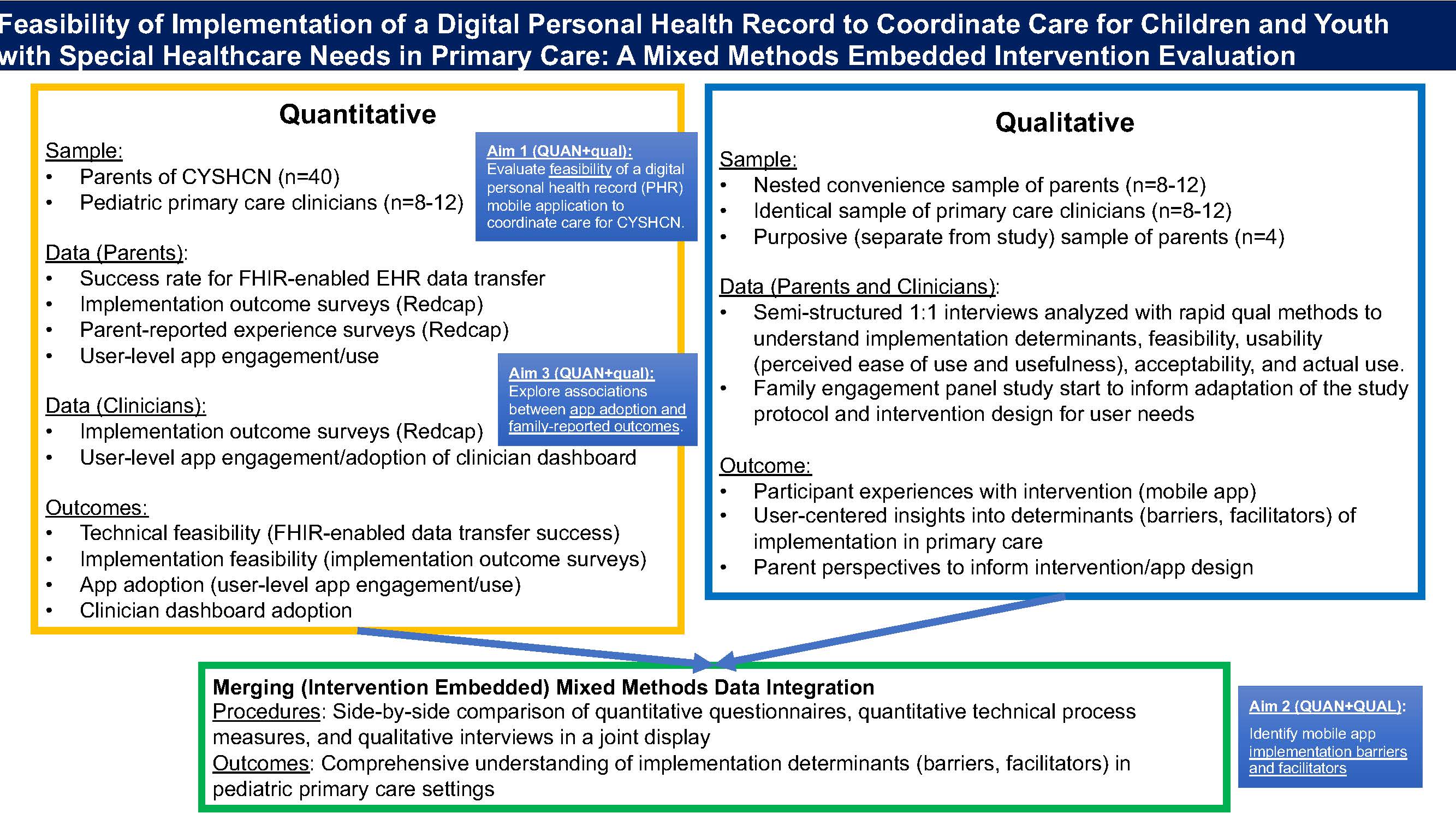Children with Chronic Conditions
Category: Abstract Submission
Children with Chronic Conditions I
131 - Care Coordination for Children with Special Health Needs Using Digital Personal Health Records: A Feasibility Study Protocol
Sunday, April 24, 2022
3:30 PM - 6:00 PM US MT
Poster Number: 131
Willis Wong, Duke University School of Medicine, Durham, NC, United States; Kelley Jones, Duke University School of Medicine, Durham, NC, United States; Richard C. Antonelli, Boston Children's Hospital, Boston, MA, United States; Nitin Gujral, Boston Children's Hospital, Lexington, MA, United States; Sarah E. Gonzales, Duke University School of Medicine, Durham, NC, United States; William Ratliff, Duke University School of Medicine, Hillsborough, NC, United States; Heather A. King, Duke University School of Medicine; Durham VA Health Care System, Durham, NC, United States; David Ming, Duke University School of Medicine, Durham, NC, United States

Willis Wong, M.S.
Medical Student
Duke University School of Medicine
Durham, North Carolina, United States
Presenting Author(s)
Background: Digital personal health records (PHR) integrated with electronic health records via Fast Healthcare Interoperability Resources (FHIR) are promising care coordination (CC) tools. In the past five years, we developed and tested a novel digital PHR mobile app (Caremap) as a CC tool for children and youth with special healthcare needs (CYSHCN), enabling it to organize longitudinal health information on personal devices and share progress and family-reported insights with clinicians (Fig. 1). In prior proof-of-concept prototyping, a sample of 38 parents of CYSHCN from 19 states rated Caremap highly for ease of facilitating integrated care (mean= 4.1; 1=very difficult, 5=very easy). Real-world implementation and evaluation of the app are now the key next areas of study.
Objective: The aims of this study are: 1) evaluate the feasibility of a FHIR-enabled digital PHR mobile app, Caremap, to facilitate family-centered CC for CYSHCN in primary care settings; and 2) identify barriers/facilitators of implementation.
Design/Methods: This non-randomized, mixed methods, feasibility study at three academic medical center-affiliated pediatric primary care clinics will enroll 40 parents of CYSHCN to use Caremap for six months. Evaluations of feasibility and implementation are informed by the Technology Acceptance Model and Consolidated Framework for Implementation Research. We will quantitatively measure feasibility, usability, acceptability and family-reported outcomes via surveys at baseline, 3-months, and 6-months. Complementing quantitative data will be qualitative data from family and clinician interviews and community engagement panels with parents of CYSHCN analyzed by rapid qualitative methods to deepen understanding of user experience and identify implementation determinants.
Results: We anticipate study enrollment starting in April 2022 and data collection through April 2023. We will use a convergent mixed-methods design (fig. 2) to merge quantitative and qualitative data and generate insights into implementation of the digital PHR mobile app. We will analyze baseline and 6-month family-reported surveys to explore associations between level of app adoption and family-reported outcomes such as degree of care integration and health-related quality of life.Conclusion(s): This study will demonstrate the feasibility of integrating into routine care a digital PHR mobile app as a CC tool for CYSHCN and facilitate understanding of implementation determinants in primary care settings. The results will inform future randomized pragmatic trials to advance knowledge of digital health innovations to improve care for CYSHCN.
Willis Wong CVWillis CV for PAS Abstract Submission.pdf
Figure 2: Diagram Illustrating Components of Mixed Methods Design Diagram showing the various qualitative and quantitative data components that will be converged through mixed methods integration to elucidate understanding of implementation determinants of a digital PHR mobile app in pediatric primary care settings.
Diagram showing the various qualitative and quantitative data components that will be converged through mixed methods integration to elucidate understanding of implementation determinants of a digital PHR mobile app in pediatric primary care settings.
Objective: The aims of this study are: 1) evaluate the feasibility of a FHIR-enabled digital PHR mobile app, Caremap, to facilitate family-centered CC for CYSHCN in primary care settings; and 2) identify barriers/facilitators of implementation.
Design/Methods: This non-randomized, mixed methods, feasibility study at three academic medical center-affiliated pediatric primary care clinics will enroll 40 parents of CYSHCN to use Caremap for six months. Evaluations of feasibility and implementation are informed by the Technology Acceptance Model and Consolidated Framework for Implementation Research. We will quantitatively measure feasibility, usability, acceptability and family-reported outcomes via surveys at baseline, 3-months, and 6-months. Complementing quantitative data will be qualitative data from family and clinician interviews and community engagement panels with parents of CYSHCN analyzed by rapid qualitative methods to deepen understanding of user experience and identify implementation determinants.
Results: We anticipate study enrollment starting in April 2022 and data collection through April 2023. We will use a convergent mixed-methods design (fig. 2) to merge quantitative and qualitative data and generate insights into implementation of the digital PHR mobile app. We will analyze baseline and 6-month family-reported surveys to explore associations between level of app adoption and family-reported outcomes such as degree of care integration and health-related quality of life.Conclusion(s): This study will demonstrate the feasibility of integrating into routine care a digital PHR mobile app as a CC tool for CYSHCN and facilitate understanding of implementation determinants in primary care settings. The results will inform future randomized pragmatic trials to advance knowledge of digital health innovations to improve care for CYSHCN.
Willis Wong CVWillis CV for PAS Abstract Submission.pdf
Figure 2: Diagram Illustrating Components of Mixed Methods Design
 Diagram showing the various qualitative and quantitative data components that will be converged through mixed methods integration to elucidate understanding of implementation determinants of a digital PHR mobile app in pediatric primary care settings.
Diagram showing the various qualitative and quantitative data components that will be converged through mixed methods integration to elucidate understanding of implementation determinants of a digital PHR mobile app in pediatric primary care settings.